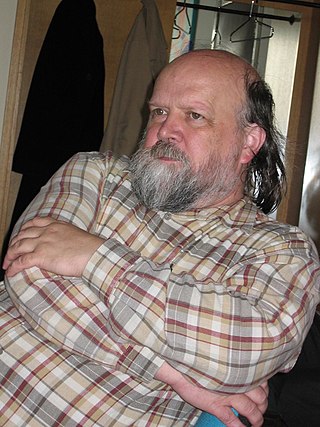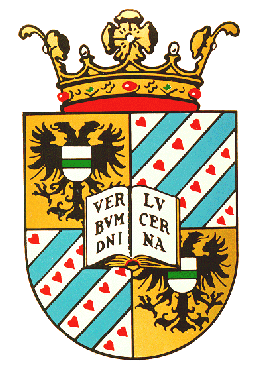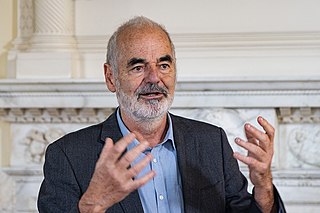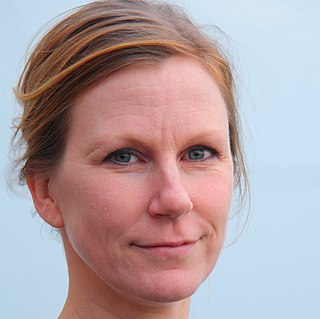Career
Tom Snijders was born in Tilburg, a son of Jan Snijders, professor of Psychology at Groningen University from 1949 to 1980, and Nan Snijders-Oomen, an internationally well-known child psychologist (author of the SON nonverbal intelligence test, 1943, 1978, 1991).
Snijders grew up in the province of Groningen, in the northern part of the Netherlands. He was awarded a cum laude Ph.D. in Mathematics, specializing in mathematical statistics, for his thesis Asymptotic optimality theory for testing problems with restricted alternatives. Since 1985 he worked as a professor of various forms of mathematics serving social science. He was part-time professor of Mathematical Sociology at Utrecht University from 1989-1992 and is an honorary senior fellow of the University of Melbourne in Australia. Stockholm University made him an honorary doctor in 2005, as did Paris Dauphine University in 2011. [1] In 2007 Snijders became correspondent of the Royal Netherlands Academy of Arts and Sciences. [2] In 2008 Snijders was awarded the Order of Knight of the Netherlands Lion.
Many of his former Ph.D. students and postdocs have found academic positions and are at the forefront of their terrain, including Roel Bosker, Marijtje van Duijn, Roger Leenders, Chris Snijders, Albertine J. (Tineke) Oldehinkel, Rafael Wittek, René Veenstra, Marcel van Assen, Christian Steglich, Miranda Lubbers, Per Block, and Nynke Niezink.

Social science is one of the branches of science, devoted to the study of societies and the relationships among individuals within those societies. The term was formerly used to refer to the field of sociology, the original "science of society", established in the 19th century. In addition to sociology, it now encompasses a wide array of academic disciplines, including anthropology, archaeology, economics, human geography, linguistics, management science, communication science and political science.

Vladimir Batagelj is a Slovenian mathematician and an emeritus professor of mathematics at the University of Ljubljana. He is known for his work in discrete mathematics and combinatorial optimization, particularly analysis of social networks and other large networks (blockmodeling).
Computational archaeology describes computer-based analytical methods for the study of long-term human behaviour and behavioural evolution. As with other sub-disciplines that have prefixed 'computational' to their name, the term is reserved for methods that could not realistically be performed without the aid of a computer.

The University of Groningen is a public research university of more than 30,000 students in the city of Groningen in the Netherlands. Founded in 1614, the university is the second oldest in the country and one of the most traditional and prestigious universities in the Netherlands.
John Harry Goldthorpe is a British sociologist. He is an emeritus Fellow of Nuffield College, Oxford. His main research interests are in the fields of social stratification and mobility, and comparative macro-sociology. He also writes on methodological issues in relation to the integration of empirical, quantitative research and theory with a particular focus on issues of causation.

Sir David Roxbee Cox was a British statistician and educator. His wide-ranging contributions to the field of statistics included introducing logistic regression, the proportional hazards model and the Cox process, a point process named after him.

Sir David John Spiegelhalter is a British statistician and a Fellow of Churchill College, Cambridge. From 2007 to 2018 he was Winton Professor of the Public Understanding of Risk in the Statistical Laboratory at the University of Cambridge. Spiegelhalter is an ISI highly cited researcher.

Douglas R. White was an American complexity researcher, social anthropologist, sociologist, and social network researcher at the University of California, Irvine.
Jefferson Morris Gill is Distinguished Professor of Government, and of Mathematics & Statistics, the Director of the Center for Data Science, the Editor of Political Analysis, and a member of the Center for Behavioral Neuroscience at American University as of the Fall of 2017.
Anuška Ferligoj is a Slovenian mathematician, born August 19, 1947, in Ljubljana, Slovenia, whose specialty is statistics and network analysis. Her specific interests include multivariate analysis, cluster analysis, social network analysis, methodological research of public opinion, analysis of scientific networks. She is Fellow of the European Academy of Sociology.

Jan de Leeuw is a Dutch statistician and psychometrician. He is distinguished professor emeritus of statistics and founding chair of the Department of Statistics, University of California, Los Angeles. In addition, he is the founding editor and former editor-in-chief of the Journal of Statistical Software, as well as the former editor-in-chief of the Journal of Multivariate Analysis and the Journal of Educational and Behavioral Statistics.

Kathleen M. Carley is an American computational social scientist specializing in dynamic network analysis. She is a professor in the School of Computer Science in the Carnegie Mellon Institute for Software Research at Carnegie Mellon University and also holds appointments in the Tepper School of Business, the Heinz College, the Department of Engineering and Public Policy, and the Department of Social and Decision Sciences.

Exponential Random Graph Models (ERGMs) are a family of statistical models for analyzing data from social and other networks. Examples of networks examined using ERGM include knowledge networks, organizational networks, colleague networks, social media networks, networks of scientific development, and others.

Josephus Johannes Cornelis Maria (Joop) Hox is a Dutch psychologist and Professor of Social Science Methodology at the Utrecht University, known for his work in the field of social research method such as survey research and multilevel modeling.
Joseph Galaskiewicz is an American sociologist and Professor of Sociology at the University of Arizona, known for his work on interorganizational relations and social network analysis.
Stanley Wasserman is an American statistician and prior to retirement was the Rudy Professor of Statistics, Psychology, and Sociology at Indiana University Bloomington and the Academic Supervisor of the International laboratory for Applied Network Research at Moscow's National Research University – Higher School of Economics. He is known for his work on social network analysis, mathematical sociology, network science and multidimensional network. In 2017 Wasserman launched the Master's program 'Applied statistics with Network Analysis' at National Research University – Higher School of Economics.
Melinda Mills, is a Canadian and Dutch demographer and sociologist. She is currently the Nuffield Professor of Sociology at Nuffield College, University of Oxford. Mills’ research spans a range of interdisciplinary topics at the intersection of demography, sociology, molecular genetics and statistics. Her substantive research specializes in fertility and human reproductive behaviour, assortative mating, labour market, life course and inequality.
Fiona Alison Steele, is a British statistician. Since 2013, she has been Professor of Statistics at the London School of Economics (LSE).

Ellen Louise "E.L." Hamaker is a Dutch-American psychologist, and statistician. Since 2018 she has been a full professor at Utrecht University, holding the chair Longitudinal Data Analysis at the Department of Methodology and Statistics. Her work focuses on the development of statistical models for the analysis of intensive longitudinal data in psychology, mainly within the frameworks of structural equation modeling and time series analysis.

Blockmodeling is a set or a coherent framework, that is used for analyzing social structure and also for setting procedure(s) for partitioning (clustering) social network's units, based on specific patterns, which form a distinctive structure through interconnectivity. It is primarily used in statistics, machine learning and network science.











